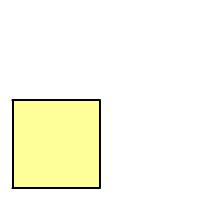Language Acquisition/Nature or Nurture/Poverty of the Stimulus
The poverty of the stimulus argument (POS/POSA/APS) is of great importance on the nativist side. It argues that children do not receive sufficient input to generalise grammatical rules through linguistic input (or primary linguistic data) alone. Introduced and championed by Chomsky, it continues to have far-reaching influence in the nature/nurture debate. Opponents have criticised the argument as logically flawed or empirically baseless, whereas supporters have made attempts to refute these counter-arguments and provided empirical data of their own.
Chomsky did not clearly state the argument when it was first introduced. The lack of clarity has led to much confusion over the nature of the argument. Different scholars have introduced different premises to the argument, which were laid out in Pullum and Scholtz's critical review. Before we try to define the POS argument, let's look at what Chomsky calls Plato's Problem, a classic example of rationalism.
Plato's Problem
[edit | edit source]
Chomsky's rationalist view towards language acquisition harks back to a Plato. Plato wrote that by drawing geometric figures in the ground, Socrates demonstrated that the slave was initially unaware of how to find twice the area of a square. Socrates then said that before he got hold of him ,the slave, who had been picked haphazardly from Meno's entourage, had spoken 'well and fluently' on the subject of a square double the size of a given square. Socrates then drew a second square figure on the diagonal so that the slave could see that by adding vertical and horizontal lines touching the corners of the square, the double of its area was created. He got the slave to agree that this was twice the size of the original square and said that he had 'spontaneously recovered' knowledge he knew from a past life without having been taught. Socrates was satisfied that new beliefs were 'newly aroused' in the slave.
Chomsky believes that a similar argument applies to language acquisition. Children's language ability are 'aroused' by primary linguistic data. The innate ability that was there had to come from some source. Chomsky calls this mystery 'Plato's Problem', and he believes this innate knowledge to be biological.
What is the POS argument?
[edit | edit source]Pullum and Scholz identified a number of separate claims made within typical descriptions of the POS argument, regarding the characteristics of child language acquisition and primary linguistic data. We will examine all of these claims one by one.
Characteristics of acquisition
[edit | edit source]- Speed: Children acquire language swiftly.
- Reliability: Few children fail at acquiring language.
- Productivity: Children can produce an infinite number of sentences.
- Selectivity: A number of grammars can be deduced from childrens' input, but they do not pick the wrong grammars.
- Undetermination: The grammars that children learn cannot be determined by the data.
- Convergence: Children arrive at similar mature competence.
- Universality: All children acquire human languages sharing similar traits that make up UG.
Characteristics of data
[edit | edit source]- Ingratitude: Children do not receive rewards for good performance,
- Finiteness: Generative grammar assumes that a finite set of grammar rules generates an infinite set of sentences. If empiricist claims were true, children would only be able to acquire what they have learnt from exposure to E-language data, which are finite in nature. This contradicts the fact that children are able to produce infinite sentences.
- Incompleteness: Children are not exposed to sufficient data to acquire language. They are not directly taught the language, either.
- Idiosyncrasy: Different children are exposed to vastly different linguistic data.
- Positivity: Children are not exposed to negative data. For example, children can learn that Bill is nice by listening to this sentence, but have no way of knowing that Bill are nice is not an acceptable alternative.
- Degeneracy of the data: The now-obsolete idea claims that parents produce erroneous input, which would, according to empiricist claims, result in abnormal language development in children. In light of empirical data, the claim has been refuted and is no longer held by nativists.
